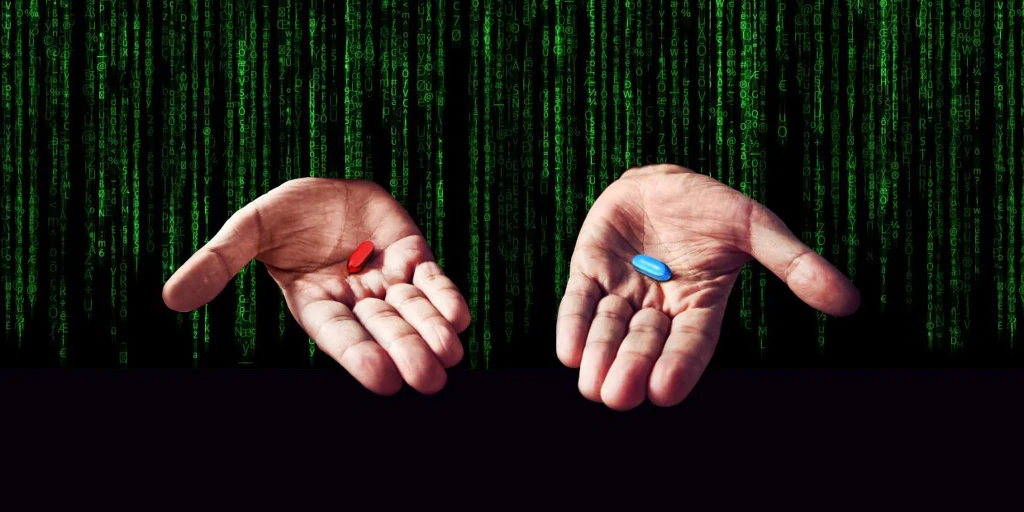“This shows that there must be…”

25 years ago, the then Wachowski brothers introduced the world to The Matrix, a film that not only revolutionized the film industry. science fiction moviebut also revived the old one philosophical debatesIn the film, Neo, played by Keanu Reeves, discovers that his reality is simulation created by machines keep humanity in check by asking questions that resonate with allegory of the cave Plato, where a group of people live chained in a cave, seeing only shadows projected onto the wall, believe what are these shades are reality.
In his famous work, The Republic, Plato questions the nature of reality and suggests that what we perceive may be part of a much more complex and profound truth. Today, this ancient idea of illusion and perception has found a new champion in the field of modern science. Melvin Vopson, a scientist at the University of Portsmouth who has shaken the foundations of modern physics and philosophy by declaring that he proof that we live in a digital simulation.
Vopson, who has spent his career exploring the possibility that the universe is a simulation, not only draws inspiration from the works of Plato and the Wachowski sisters, but also claims that he scientific evidencewhich support this hypothesis“A highly complex universe like ours, if it were a simulation, would require built-in data compression and optimization to reduce the computational power and storage requirements for running the simulation,” he said.
Vopson’s study
In his study, Vopson observed patterns in behavior digital data And biological systems which, as already mentioned, correspond to this type of information compression necessary for modelingwork like thiseffectiveIn this sense, the essence of Vopson’s hypothesis is based on its interpretation of the second law of thermodynamicswhich postulates that entropy, disorder, in a closed system can only increase or remain constant, but never decrease. However, Vopson found that in information systems, entropy behaves differently and instead of increasing, it can remain constant or even decreasediscovery that would contradict this fundamental law. This prompted him to propose The Second Law of Infodynamicsan extension that could explain how information is processed in the simulated universe.
“We know that the universe is expanding without losing or gaining heat, which requires that the total entropy of the universe be constant,” Vopson explains. “However, we also know from thermodynamics that entropy is always increasing. I argue that this shows that there must be another entropy, information entropy, to balance this increase. This new law, Vopson argues, could have implied not only for physics And cosmologybut also for biological systemsFor example, he suggests that genetic mutationsfar from complete random As Charles Darwin stated, they can be under the influence through a process designed to minimize information entropy.
Vopson even analyzed SARS-CoV-2 virus and found that there was a “unique correlation between information and the dynamics of genetic mutations.” This discovery, he said, supported his theory that informationand not only item wave energyplays a fundamental role in structure of the universe.
However, these statements were not exempt from reviews. In this sense, the scientific portal IFLScience noted that while Vopson’s Second Law of Infodynamics may lead to interesting discoveries, “there are as many research papers that refute our digital existence as there are those that promote its scientific inevitability.” In other words, while the idea that we live in a simulation is fascinating, it is also lack of scientific verification and consensus must be taken into account plausible.
